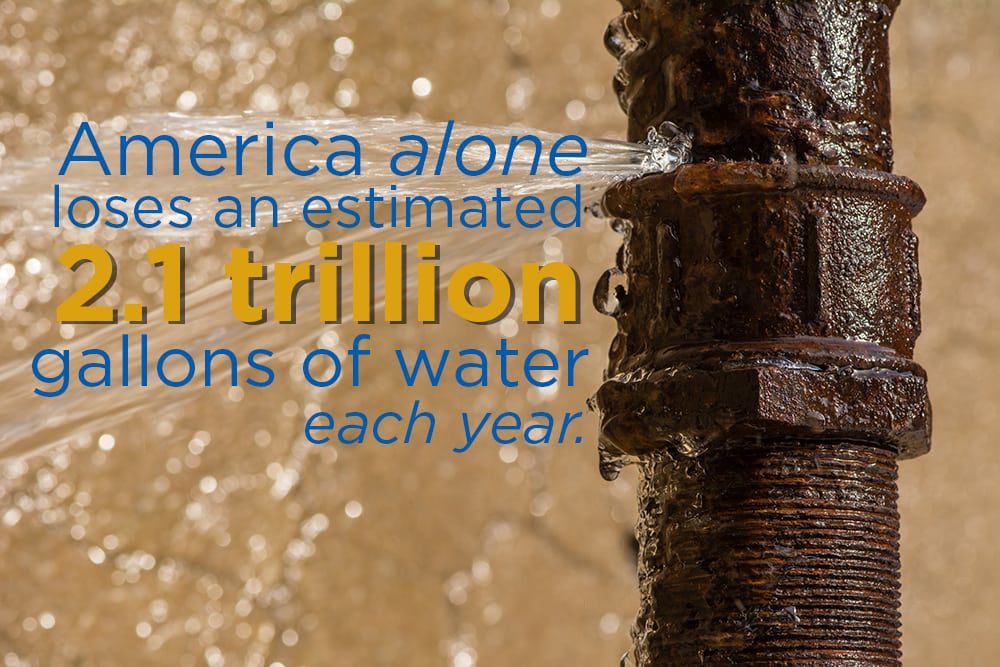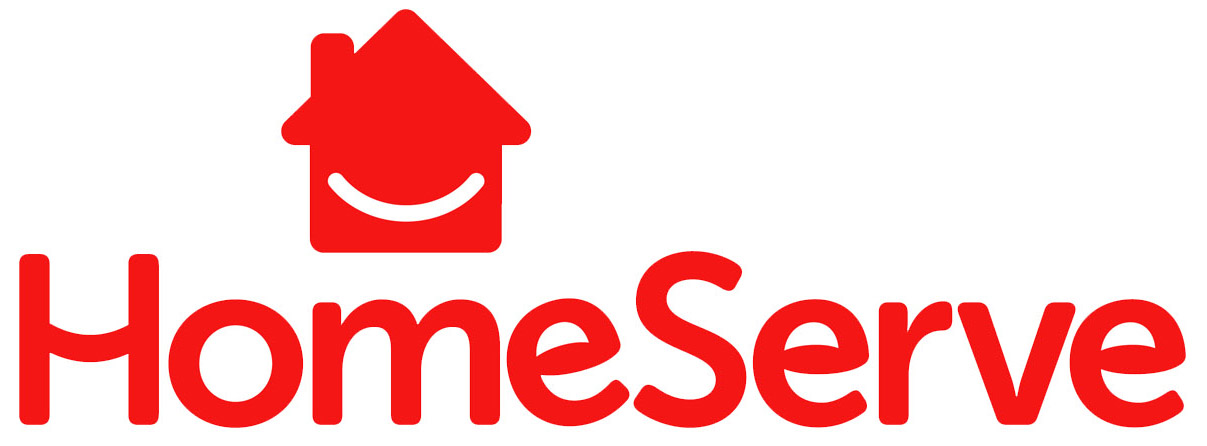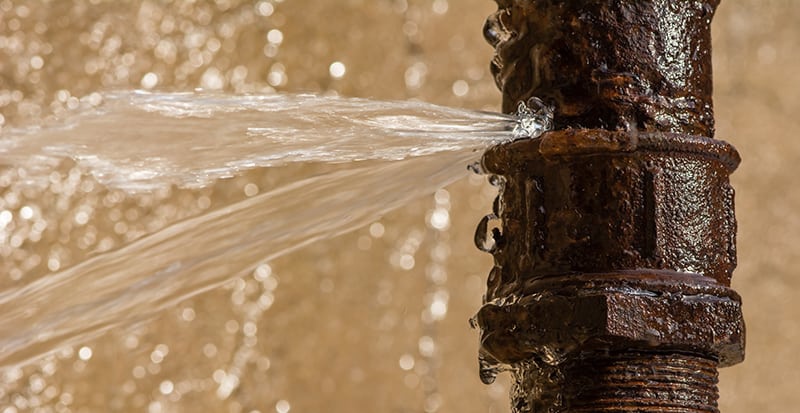 A state audit found that Pittsburgh is losing half of the clean water it processes; Olean, N.Y., loses two of every five gallons; Ontario, Canada, is losing $700 million a year in water leaks – the list goes on and on. America alone loses an estimated 2.1 trillion gallons of water each year.
A state audit found that Pittsburgh is losing half of the clean water it processes; Olean, N.Y., loses two of every five gallons; Ontario, Canada, is losing $700 million a year in water leaks – the list goes on and on. America alone loses an estimated 2.1 trillion gallons of water each year.
The causes for leaking lines are legion, including aging infrastructure, mechanical damage and lack of corrosion protection. In addition to the environmental and financial impact of leaking water lines, leaks of more than 20 percent of a utility’s water volume also will reduce the amount of pressure in the lines – an issue when the local fire department taps into a fire hydrant.
Finding a water leak can be difficult – most methods include sonic leak-detection equipment, which helps service crews by identifying the sound of water escaping a water line. Larger leaks that bubble up to the surface may lose less water in the long run, because they are quickly identified and repaired, but small, subtle leaks can drain water – and money – from a utility for months and even years.
An important tool in leak detection and repair are detailed records of water production, sales, unmetered use and metered use. This, paired with information such as historical leak statistics, information on line age and composition and intelligence about variable factors such as heavy usage and exposure to traffic vibration, can help predict or find leaks.
Leak detection and repair can be paired with a range of initiatives, including education programs; encouraging the conservation of water for landscaping, filling water features and washing vehicles and paved surfaces, whether by education or ordinance; conservation rebate programs; and water recycling.
One way to help residents save water is by providing smart meters. Smart meters have been around for more than a decade – and are particularly popular in the electricity sector — but they’ve seen a surge in popularity in the past five years.
Smart meters are able to record water usage and report it wirelessly, sometimes over a cellular network, at regular intervals. Real-time metering not only encourages conservation, but it can help residents detect leaks and consumption patterns. Some smart meter software can even analyze the data provided by meters operating throughout a utility’s territory, providing valuable data or alerting a customer to a spike in water usage.
Although they are more accurate over time than analog meters, which lose their effectiveness and underreport usage as they age, smart meters also are much more expensive, costing as much as seven times as much as an analog meter. Water meters have their detractors – some because the cost, others have doubts about the accuracy and yet others are concerned about “catch up” readings, or readings showing the gap between the estimated and the actual reading.
Each community will have a different approach, using different tools, to address water leaks. Among those tools available, consider the National League of Cities (NLC) Service Line Warranty Program, which offers water line warranties to homeowners, so they will be in a position to fix any leaks in their service lines. It is another tool in your arsenal to combat an aging delivery system leaking water and dollars. In addition, qualifying municipalities can receive royalties they can apply toward infrastructure projects.Contact us to learn more about how the NLC Service Line Warranty Program can benefit your community.

